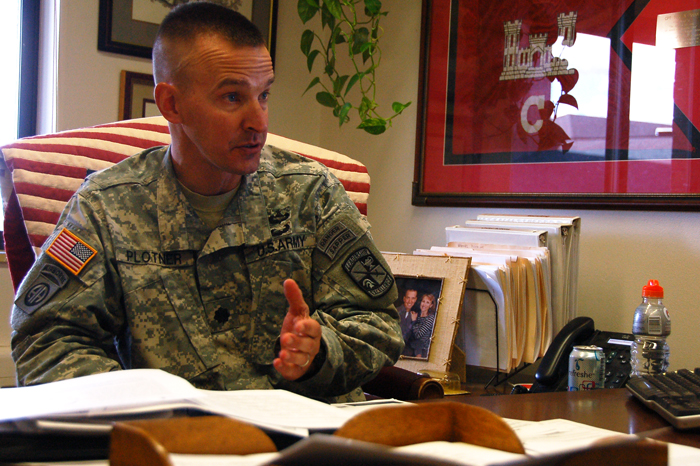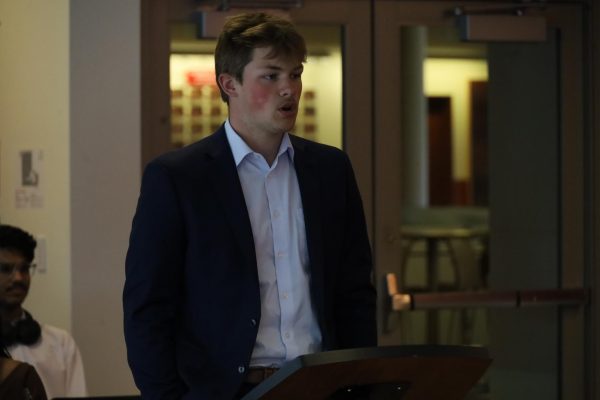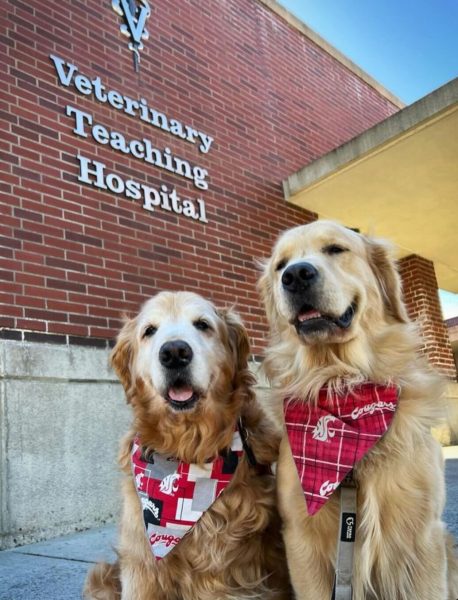Shutdown reaches Cougar Battalion
Todd Plotner, lietenant colonel and professor of military science, speaks in his office Wednesday, Sept. 18, 2013.
October 10, 2013
WSU ROTC members are feeling the effects of the government shutdown as funding for programs and scholarships remain at a stand-still.
Cadets in the program cannot access two forms of payment as a result of the government shutdown, said Todd Plotner, lieutenant colonel and professor of military science.
“Both scholarships and stipends will be on hold until a budget passes, at which time cadets will receive retroactive payment,” Plotner said.
He said the Cougar Battalion has been working with the university registrar to communicate that tuition payments will be delayed for those who rely on ROTC funding.
“I do not anticipate any problems with the university with regards to payments from the cadets,” Plotner said. “They understand our situation, and they are very supportive of what we do here.”
The unit will continue with education and local training, but with limited resources, he said.
Robert Baca, master sergeant and senior military instructor, said the spending limitation is resulting in a delay of the cadet’s off-site training exercise.
He said if the shutdown continues much longer, the cadets will resort to training locally.
“The university lets us use the EH Steffen Center for field training locally,” Baca said. “It’s not ideal, as we like to get out in a larger area, but it might be what we end up doing.”
Wayne Hubbard, a senior computer engineer major, is a member of both the National Guard and the WSU ROTC. Hubbard said he is worried about the hardships facing ROTC students.
“The budget crisis is hurtful not only to veterans, but to those in ROTC who are trying to become officers,” Hubbard said. “ROTC students are depending on this for their education.”
The scholarships ROTC students receive from the government are granted as part of an agreement that the student will commission into the army, he explained.
If the shutdown continues long-term, some students might have to drop out of school and seek employment to repay the government.
“We would have to pay back the scholarship one way or another,” Hubbard said.
Plotner said he hopes local creditors will extend deadlines for cadets who rely on government funding to pay for living essentials like room and board.
“We ask for patience from local creditors who collect money from cadets because their stipends and scholarships are being delayed,” he said. “But the government is good for it and will reimburse cadets.”
Baca said the lost scholarships and stipends resulting from the shutdown affect the ROTC department the most.
“We hope this gets resolved as soon as possible, so it doesn’t continue to affect people’s pay and livelihood,” Baca said.
Hubbard said he hopes the budget issue will resolve soon for veterans, students and civilian workers.
“We’re reliant on the government to help us out when we’re in need,” he said. “It’s disheartening that this political situation is letting us down.”



















